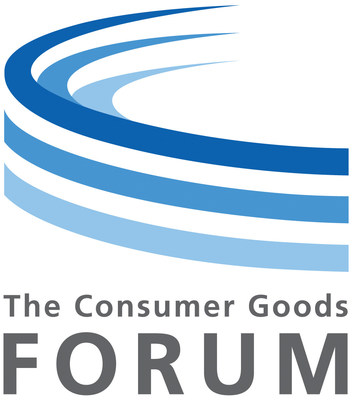 |
PARIS, Nov. 6, 2018 /PRNewswire/ --
FLA report highlights serious challenges in the Indonesian and Malaysian markets
Malaysia and Indonesia are leading producers of palm oil, together accounting for 86 percent of global production and employing nearly 3.5 million workers, largely migrants from poorer neighbouring regions and countries.
A new report from the Fair Labor Association (FLA), commissioned by The Consumer Goods Forum's (CGF) Palm Oil Working Group, seeks to understand the forced labour risks across the sector in both countries and examine the role that consumer goods companies can play in bringing an end to the issue.
Indicators of forced labour
New research from the Fair Labor Association and the CGF finds that the palm oil sector in Indonesia and Malaysia each show several indicators of forced labour, such as coercive practices including threats; violence and lack of clarity of employment terms and conditions; dependency on the employer; lack of protection by state/police; debt bondage; high recruitment fees; and involuntary overtime. The highest risk of forced labour was determined to be among harvest and maintenance workers, including those who apply pesticides and fertilisers, a job that carries higher health and safety risks as well.
Peter Freedman, Managing Director of The Consumer Goods Forum, said, "Three years ago, the CGF, as the global platform for driving positive change across the consumer industry, established a programme of work to help eradicate forced labour from value chains around the world - the first of its kind. We welcome the FLA report which gives us new insights and practical recommendations that will help us accelerate our work. Forced labour is an endemic global problem, and the only solution is to work together alongside palm oil companies, recruitment agencies, business and governments."
Sharon Waxman, FLA President and CEO, said: "The Fair Labor Association's review of the palm oil sector in Malaysia and Indonesia confirms that forced labour is a systemic and enormously complex challenge that must be addressed expeditiously. We hope our report drives meaningful conversation and concerted action to tackle the root causes behind forced labour in palm oil production. The FLA commits to work alongside The Consumer Goods Forum, CGF members, and like-minded stakeholders to identify and implement solutions that will bring an end to forced labour and protect workers around the globe."
Mitigating forced labour risks
This report highlights the critical role companies can play in mitigating forced labour risks in the production of palm oil by leveraging its industry leadership to spur the collective action of its members. Key areas of opportunity include:
To take action, and mitigate these risks, the CGF has also developed an action plan based upon the recommendations in the FLA report, demonstrating and reconfirming its resolve to work collaboratively to address forced labour issues in the sector.
Olaf Koch, CEO of METRO AG, and Co-Chair of the CGF Board of Directors, said, "In the world of sustainability, the environmental issues related to palm oil have long overshadowed the human rights concerns. Thanks to the latest report commissioned by the CGF, no one can now deny that this problem exists. With the support of the FLA and our fellow members of the CGF, it's time to start driving positive change on this issue and begin implementing the Priority Industry Principles on Forced Labour and following the newly-published action plan. We must act today."
Marc Engel, Chief Supply Chain Officer at Unilever, said, "As CGF members, we are convinced that businesses must work collaboratively. When it comes to the eradication of forced labour there is no time to waste and it is paramount we remain vigilant to tackle the root causes. Collectively, we wanted an independent, comprehensive review of the continuing social challenges in the palm industry in Indonesia and Malaysia. As Unilever is one of the leading buyers of palm oil, the findings of the FLA report are highly valuable and will help strengthen our efforts to end forced labour globally. We will continue to work alongside fellow CGF members and other stakeholders to drive implementation of the CGF's Priority Industry Principles and drive positive change."
To learn more about the CGF's work on eradicating forced labour, visit http://www.tcgfsocial.com
About The Consumer Goods Forum
The Consumer Goods Forum ("CGF") is a global, parity-based industry network that is driven by its members to encourage the global adoption of practices and standards that serves the consumer goods industry worldwide. It brings together the CEOs and senior management of some 400 retailers, manufacturers, service providers, and other stakeholders across 70 countries, and it reflects the diversity of the industry in geography, size, product category and format. Its member companies have combined sales of EUR 3.5 trillion and directly employ nearly 10 million people, with a further 90 million related jobs estimated along the value chain. It is governed by its Board of Directors, which comprises more than 50 manufacturer and retailer CEOs. For more information, please visit: http://www.theconsumergoodsforum.com.
About the Fair Labor Association
The Fair Labor Association promotes and protects workers' rights and improves workplace conditions by facilitating collaboration among businesses, civil society organizations, and colleges and universities. The FLA conducts transparent and independent monitoring to ensure that rigorous labor standards are upheld wherever FLA affiliates source their products, identifies root causes of non-compliances and proposes solutions to workplace problems. For more information, visit http://www.fairlabor.org.